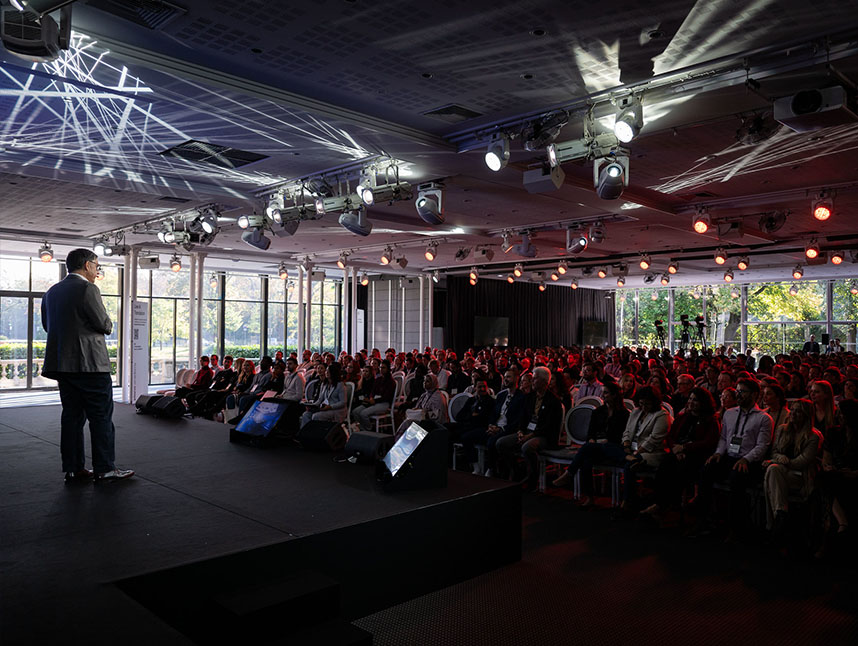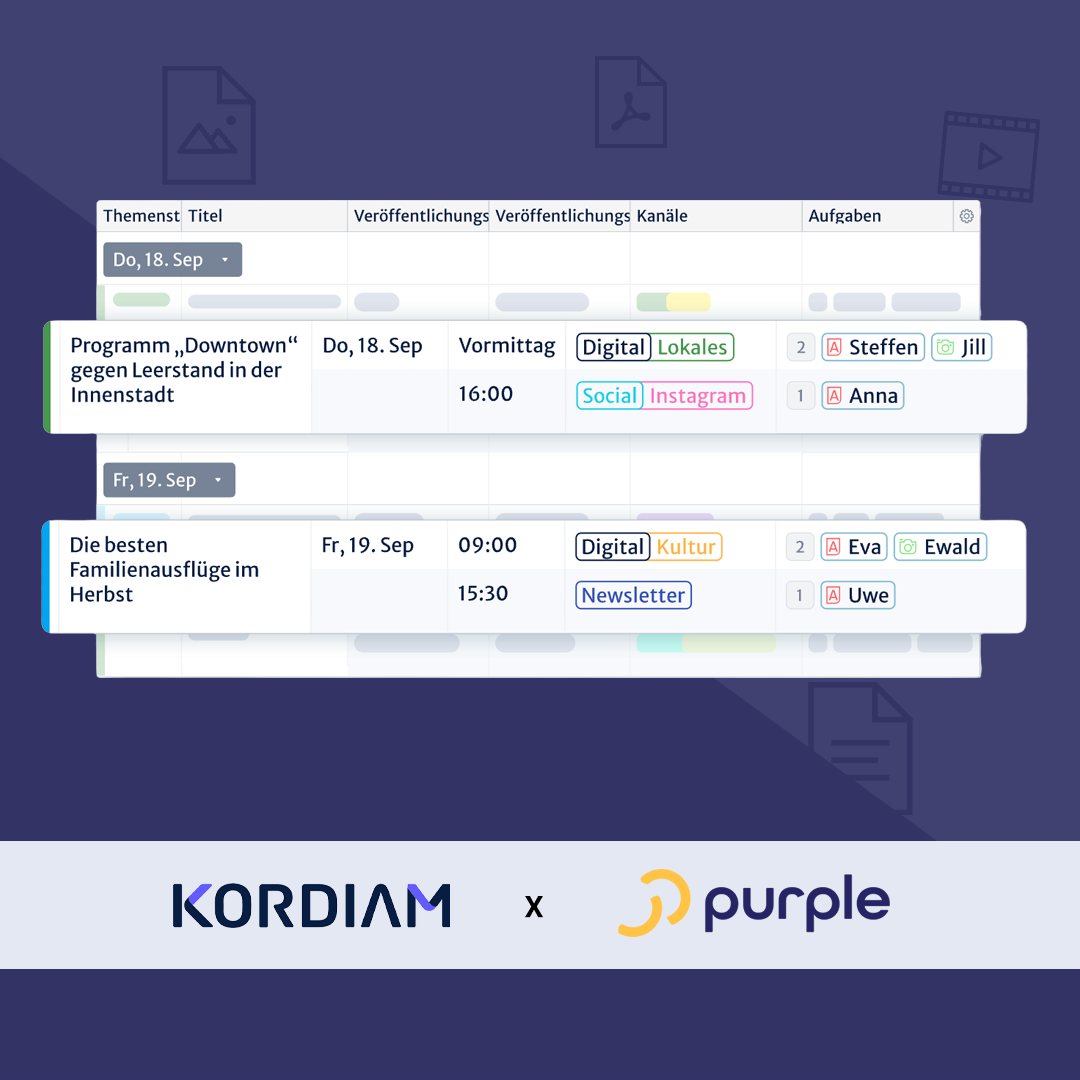4 Insights from Piano Academy 2025 or How Publishers Increase Revenue Despite Declining Traffic
Piano Academy 2025 brought together more than 400 executives from nearly 20 countries at Paris's Pavillon d'Armenonville in early October. The focus: content monetisation in times of declining traffic numbers, dynamic paywalls, AI integration in editorial processes, and the strategic conflict between subscription sales and traditional advertising business. Media houses such as BBC Studios, DER STANDARD, POLITICO, and L'Express shared impressively candid insights into their strategies. The event confirmed for me emphatically: revenue growth doesn't come from more traffic, but from better understanding and more targeted activation of existing users.

My Key Takeaways
- Traffic is declining, revenue is rising: 70% of publishers recorded revenue growth despite falling visitor numbers, i.e. engagement clearly beats volume.
- The power of dynamic paywalls: Segmentation and AI-supported optimisation enable better conversion rates without traffic growth.
- Sales vs. advertising requires strategic clarity: Paywall models fundamentally change marketing, editorial work, and product development.
- AI integration becomes a competitive advantage: Publishers that systematically integrate AI into editorial processes create the foundation for personalisation and more precise monetisation.
1 Traffic Isn't Dead, but Volume Alone Is No Longer Enough
Many publishers need to rethink their growth strategy. Whilst traffic overall declined by 2% and conversions fell by 1.3%, revenue amongst Piano customers rose by 10.4%.
Katelyn Belyus, Global VP of Strategy and Analytics at Piano, demonstrated that Google AI Overviews and declining social media reach are undermining traditional acquisition logic. AI referrals exploded by nearly 2,000%, but remain marginal. The crucial insight: highly engaged users convert 44 times better than one-time visitors and generate an average revenue per thousand visitors of over $25, compared to just 23 cents for one-time visitors.
How publishers implement this: Harvard Business Review optimised paywall strategies based on content performance data and increased conversion rates by up to 60%. Publico tested AI-supported regwalls for users from search and social. The result: 41,000 new registrations in 10 days. The Athenian morning newspaper Kathimerini introduced free and premium newsletters and multiplied its subscriber numbers 25-fold within two years.
2 Dynamic Paywalls and AI Make Monetisation Measurable
Static paywalls are a thing of the past. Modern publishers use dynamic, user-based models that are continuously optimised through iterative, AI-supported loops.
Trevor Kaufman, CEO of Piano, emphasised that AI is becoming the standard. With tools like Piano Tutor, which has already processed over 58,000 customer enquiries and completely resolves 40% of all support tickets, Piano demonstrates how data-driven automation works. The announced deeper integration with Stripe and the new VX2 platform for subscription orchestration bring additional power to authentication rates and payment default management.
How publishers implement this: BBC Studios migrated from metered regwalls to propensity-based paywalls, tested systematically, and increased conversions without advertising losses. L'Express relies on semantic personalisation of push notifications. Incidentally, 70% of readers use the mobile app, where they spend twice as much time as on the website. The sports equipment manufacturer Salomon built a cloud-native data infrastructure with Piano and Snowflake and saved four hours per user per week.
3 The Conflict Between Sales and Advertising Requires Decisions
Once content sits behind the paywall, traditional advertising models become obsolete. This decision massively affects marketing, product development, and editorial work.
Paywall models change the journalistic core: content is produced for paying, highly engaged readers, not for reach and ad impressions. This influences topic selection, format, and production rhythm. Media houses like DER STANDARD and POLITICO showed how they master this balancing act through clear internal governance and close coordination between editorial, product, and sales teams.
How publishers implement this: L'Express focuses on premium content with added value for paying readers and invests in depth rather than breadth. Topics such as education and European affairs are prepared in multiple formats. The flagship podcast La Loupe reaches over 200,000 listeners per month. France Télévisions implemented automated monitoring across 40 platforms, and now 95% of all anomalies are detected before teams report complaints.
4 AI Integration in the Newsroom Becomes a Competitive Advantage
Publishers that systematically integrate AI into their editorial processes not only gain efficiency but create the foundation for personalised content experiences and more precise monetisation. AI is no longer a future topic but an operational reality.
Trevor Kaufman, CEO of Piano, made it clear: AI is becoming the standard. Piano Tutor already processes over 58,000 enquiries and resolves 40% of all support tickets completely autonomously. L'Express is preparing to reach 60 million European readers with AI-supported translation. The message was clear: publishers need intelligent systems that take over repetitive tasks so newsrooms can focus on journalistic quality. At the same time, these systems are what enable the data-driven personalisation necessary for successful paywalls.
How publishers implement this: L'Express uses semantic personalisation, BBC Studios propensity-based paywalls.
Purple, incidentally, enables precisely this AI integration as a service: with agent-based AI workflows, your newsroom can integrate automation directly – from processing press releases to topic discovery via Perplexity to content generation. The webhook-based integration allows preconfigured workflows or your own Python scripts. This is how we make digital-first publishing with integrated AI a reality.

Conclusion
Piano Academy 2025 made it clear: traffic growth is no longer a reliable indicator. Publishers must understand user behaviour, promote engagement, and implement data-driven monetisation strategies. The candid insights from BBC Studios, L'Express, DER STANDARD, and others showed that whilst the path isn't easy, it is achievable.
A huge merci to York Walterscheid and Clemens Hammacher from Piano for the invitation and the excellently organised professional and personal exchange. Would you like to see how Purple makes your editorial processes more efficient and supports monetisation strategies? Book a demo and discover how digital-first publishing works with the Purple Content Cloud.






%201.svg)











